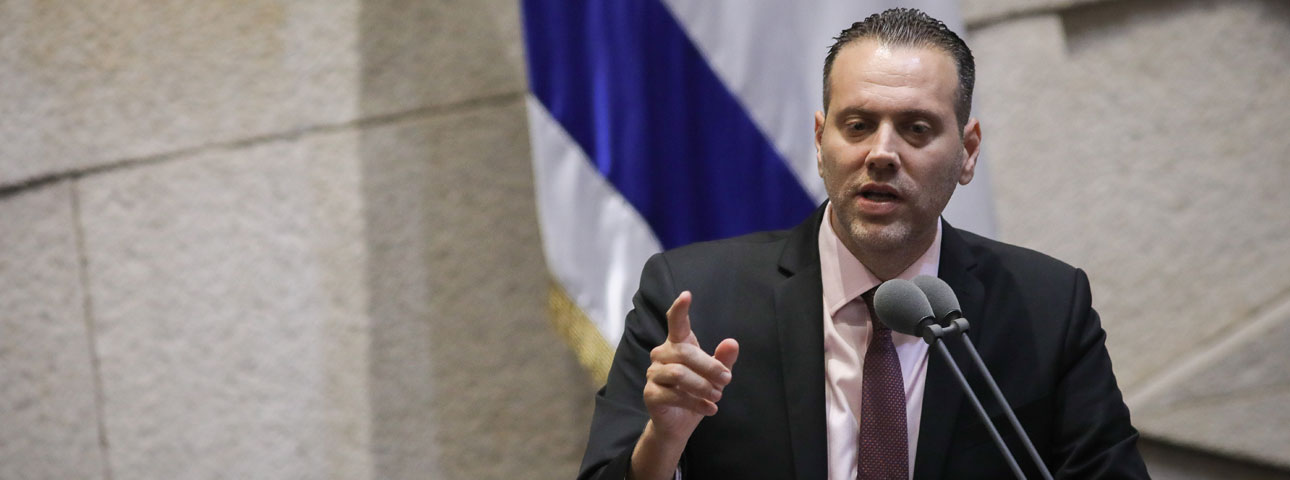IDI Experts: MK Zohar is Exceeding His Authority as Chair by Refusing to Convene Arrangements Committee
The decision not to convene the Arrangements Committee prevents the Knesset from conducting itself as a legislative body and performing its oversight duties

MK Miki Zohar | Flash 90
Experts from the Israel Democracy Institute sent a letter to Knesset Legal Advisor warning that the decision by MK Miki Zohar, Chair of the Arrangements Committee, not to convene the Committee, “prevents the Knesset from conducting itself as a legislative body and performing its oversight duties, while undermining both the will of the existing majority in the Knesset in its entirety as well as in the Committee, which should serve as the cornerstone for the Knesset's work."
The researchers, Prof. Yuval Shany, Prof. Mordechai Kremnitzer, Dr. Amir Fuchs and Nadiv Mordechay, noted that "We believe that preventing the Committee’s work impedes implementation of the Basic Law: Knesset and effectively paralyzes the work of the Knesset. This action severely hinders the parliamentary functioning of the Knesset. The Chair of the Arrangements Committee must convene the Committee immediately and allow the majority to submit proposals that will enable the Knesset to function properly."
The researchers added, "While it is true that the Arrangements Committee is not required by law to form temporary parliamentary committees, it is important to note that the will of the Chair does not necessarily represent the will of the Committee as a whole. Once a majority is constituted, and then seeks to form temporary parliamentary committees, the Chair's refusal to do so then violates the principle of majority rule in the Knesset, and undermines the Committee's constitutional obligation to oversee the Knesset's activities. The majority in the Arrangements Committee also reflects the majority in the Knesset. Therefore, denying the ability of the majority to express its will is not a marginal issue regarding the internal workings of the Knesset, but rather a violation of the most basic parliamentary tenets. It is preventing a decision whose purpose is the establishment temporary Knesset committees – the very bodies are obliged to oversee the workings of the government."
The researchers emphasize that while the paralysis of the Arrangements Committee in normal times is serious, it is even more problematic in light of the current circumstances: the political, health and economic crises. “Parliamentary oversight of the government is vital, as the cabinet currently functions with almost no decision-making bodies and some ministries do not even have ministers at their helm. It is also important to remember that as a result of the COVID crisis, public health measures are still in place limiting Israelis' civil rights and it is the Knesset that is tasked with overseeing these regulations. This means that when it comes to maintaining public health as well, a fully functioning Arrangement Committee is essential. Moreover, refusing to establish the Finance Committee prevents the Knesset from performing vital parliamentary duties and oversight of government actions, and therefore is severely detrimental to the Israeli economy.”
